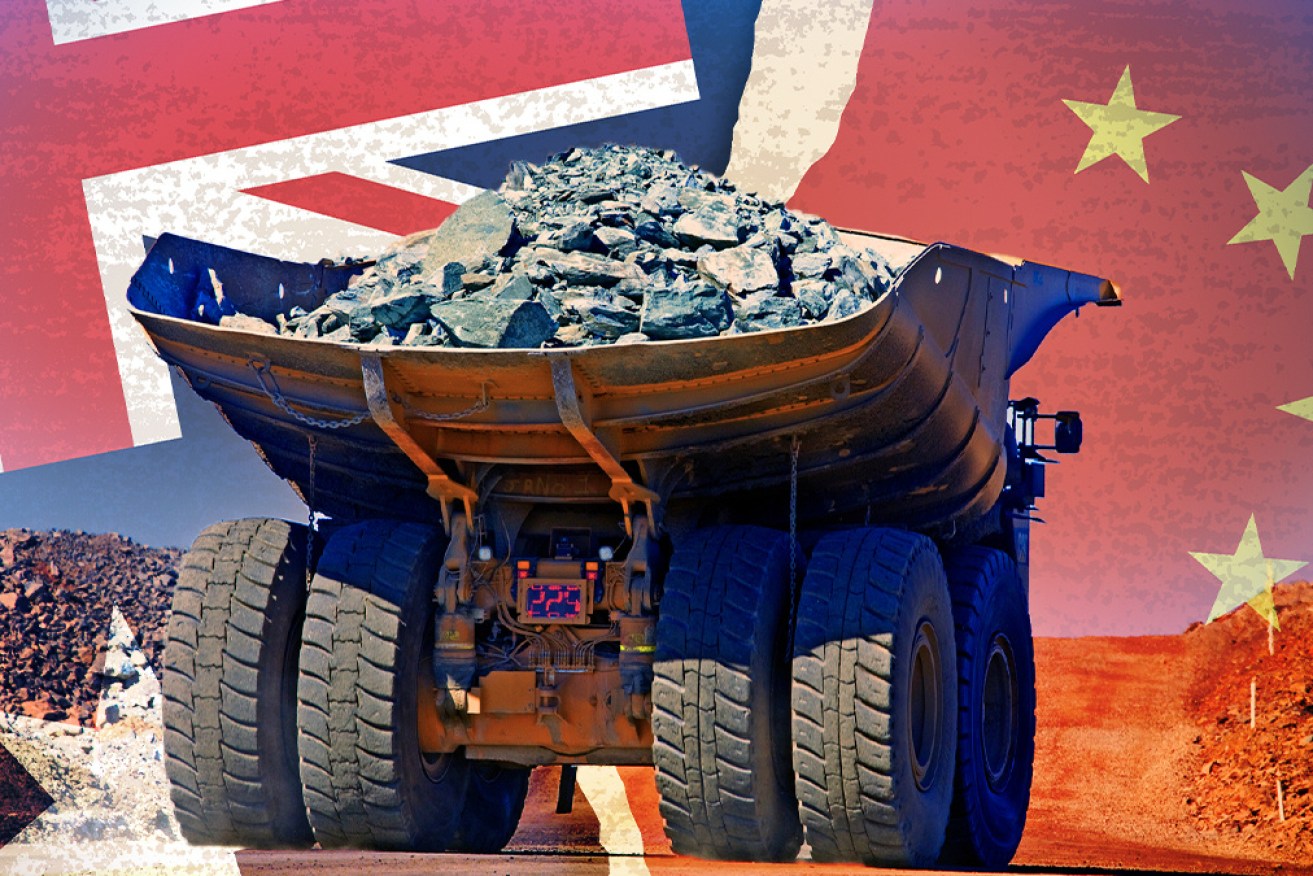Iron ore explained: The Australian export keeping our relationship with China alive


China is moving to restrict iron ore price rises. Photo: Getty/TND
Chinese-Australia relations are at their frostiest since former Prime Minister Gough Whitlam established the diplomatic relationship with an historic visit to China in 1973.
This week, things got even worse as China suspended strategic economic dialogue with Australia, a move widely interpreted as a response to the Morrison government tearing up the Victorian government’s Belt and Road memorandum with Beijing.
But while export industries like barley, timber, seafood and wine are already reeling from Chinese tariffs, there’s one mineral holding down the fort: iron ore.
Iron exports hit a record $14 billion in March thanks to strong demand from China’s steel mills and soaring prices, which hit a record $200 a tonne on Friday.
It’s hard to overstate the impact of this surge; while trade with China has fallen by 40 per cent across most industries under Beijing’s restrictions, the dollar value of exports are up 20 per cent since 2019, now valued at $13.4 billion a month.
And that’s good news for you, because not only does the mining industry support tens of thousands of jobs across Australia, it also beefs up state and federal government coffers through higher tax revenue.
In fact, the federal government is going to be about $20 billion richer than it expected in 2021-22 thanks to the soaring iron ore price, which is now more than three times higher than Treasury’s conservative $60 a tonne estimate last year.
The budget makes about $500 million for each $10 increase in the iron ore price, so there’s probably plenty more upside to come if the trade continues rocketing.
It’s worth noting that taxpayers could be making much more money from this latest iron ore boom, though. The Rudd government’s scrapped mining tax would have delivered tens of billions of dollars over the next decade, according to budget office costings commissioned by the Greens last month.
Why China hasn’t restricted iron
But why hasn’t China slapped any restrictions on iron?
Well, to put it simply, they don’t really have a choice.
Australia is one of few developed economies that maintains a trade surplus with China (we sell them more stuff than we buy from them) and iron ore is pretty much single-handedly keeping that alive, even as relations freeze.
China hasn’t slapped any trade restrictions on iron because, unlike our wine exports, it relies on Australian minerals to feed its hungry steel mills.
Australia is the worlds largest exporter of iron ore; we produced more than 8000 million metric tonnes of the stuff in the 2019-20 financial year, more than double our nearest competitor, Brazil, which has been having a few supply issues lately.
Their loss is our gain because China has become more reliant on Australian iron and there’s also less of the mineral on the global market, driving up prices.
We also produce high quality iron ore in Australia, which China’s steel mills love because it pushes up their yields, giving them better bang for their buck.
So, how long can this continue?
China’s demand for iron doesn’t look likely to abate anytime soon, the nation has a huge development pipeline and steel is a key input for its hungry economy.
Brazil is in a fair bit of strife at the moment. It has had a terrible time with the COVID pandemic and has had spotty supply in recent years after several dam collapses.
China has, however, tried to diversify its iron ore inputs and has recently tried to secure access to a new mine in West African country Guinea.
There is no shortage of challenges trying to secure a reliable iron ore supply line out of Africa though, with current hopes the mine could come online by 2025.








